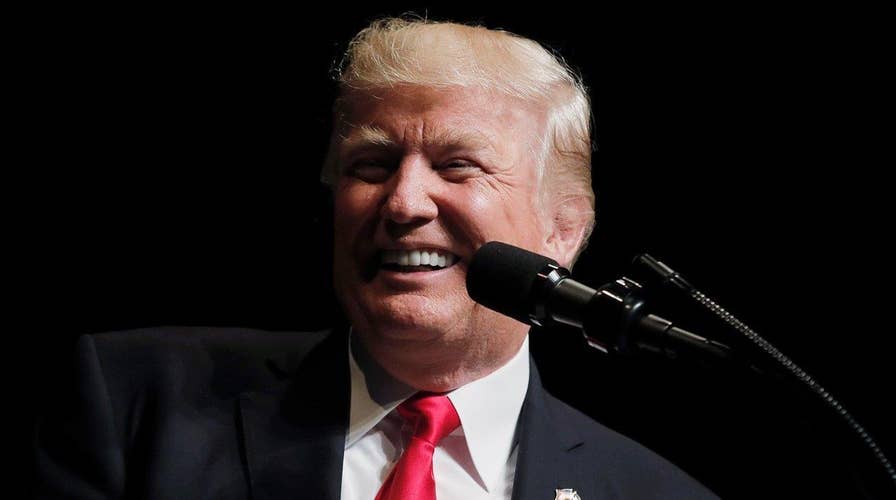Trump's revised Cuba policy highlights a generation divide
Older Cuban Americans voted for Trump and a hard line against a dictatorship; Steve Harrigan has the story for 'Special Report'
Any discussion of Cuba in South Florida brings out emotion.
President Trump’s plan to roll back Obama administration Cuba initiatives has Miami Cubans cheering on the president, others saying he didn’t go far enough and others saying it will hurt businesses.
Older Cuban Americans who fought Fidel Castro or fled Cuba overwhelmingly voted for President Trump and a hard line against a dictatorship that in many cases cost them their families or their homes.
CUBA DEAL ROLLBACK: TRUMP SAYS HE'S NIXING OBAMA'S 'ONE-SIDED’ PACT
"I think from the point of view of solidarity it's a positive step up till now,” said Cuban activist Ramon Saul Sanchez, “but we still need to see what happens from now on."
The vocal support of these Cuban-American hardliners – including some veterans of the failed 1961 Bay of Pigs invasion – helped Trump win the key swing state of Florida.
For proponents of closer ties with Cuba, the proposed rollback is not as severe as some feared.
"There's a lot here that people from both parties can support,” said Giancarlo Sopo of the CubaOne Foundation. “Americans can still travel to Cuba and Cuban-Americans can still support their families. Those things are great for Cuba's private sector."
RUBIO SLAMS OBAMA FOR CUBA 'REGIME' OUTREACH
What will not change: Commercial flights, cruise ships, family visits and sending money to Cuba will continue to be permitted. Also, the "wet foot/dry foot" policy that gave preferential treatment to Cuban migrants and was nixed under the Obama administration will remain scrapped.
What will change: No tourism through sites controlled by the Cuban military – which is estimated to control as much as 60 percent of the island's economy – including most of the tourism industry.
Some in the business sector say Trump’s rollbacks will hurt American businesses.
“Unfortunately, while the rhetoric may be something today, the practical implications of this are another,” said James Williams, president of Engage Cuba, an anti-embargo group. “It will be particularly damaging for U.S. business and damaging for the U.S. private sector which is also continuing to grow.”
Both supporters and critics of the rollback claim the ultimate goal is to help the Cuban people – by restricting tourism they say helps prop up a dictatorship and also by encouraging more tourism to help create Cuban entrepreneurs, some who fear the new rules.






















